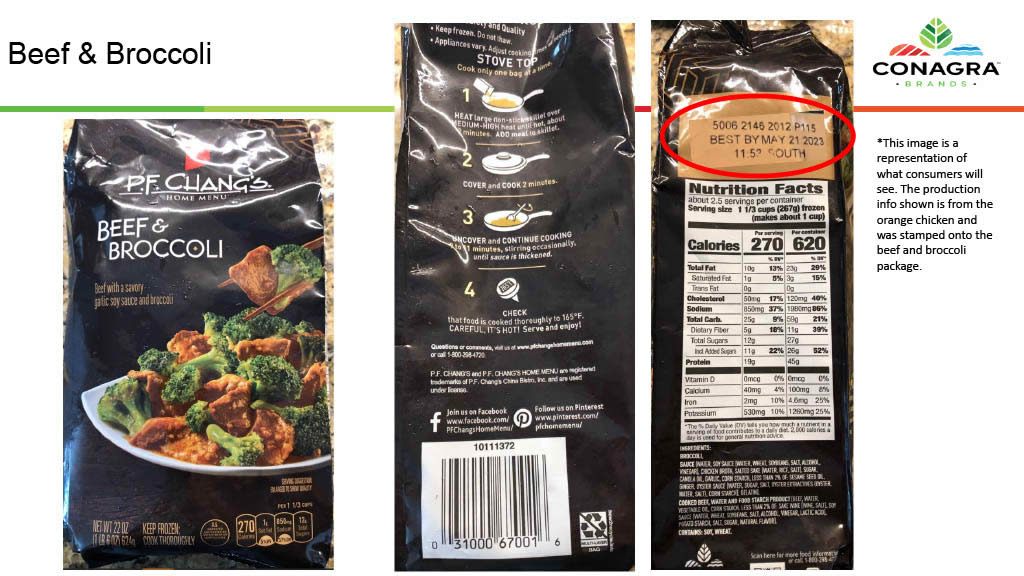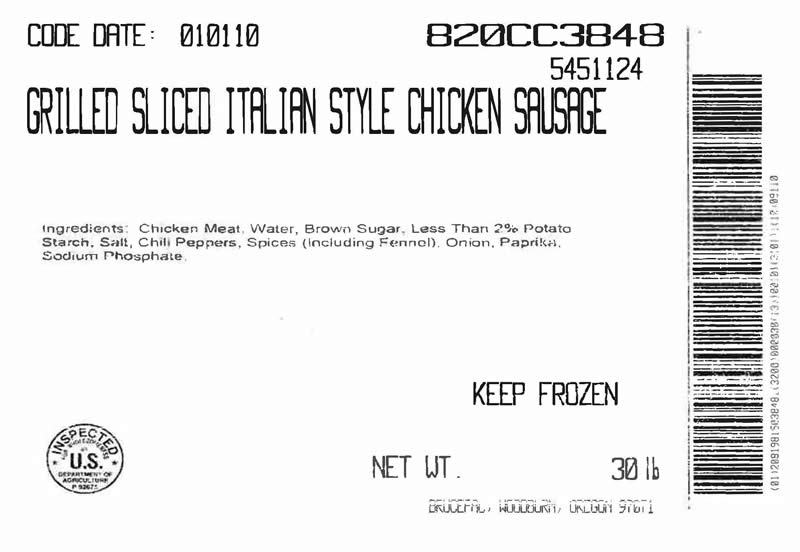
Atlanta, GA–(ENEWSPF)–December 19, 2014. CDC is collaborating with public health officials in several states and with the U.S. Food and Drug Administration (FDA) to investigate an outbreak of Listeria monocytogenes infections (listeriosis). Joint investigation efforts indicate that commercially produced, prepackaged caramel apples are the likely source.
Public health investigators are using the PulseNet system to identify cases that may be part of this outbreak. PulseNet is the national subtyping network of public health and food regulatory agency laboratories coordinated by CDC that identifies possible outbreaks. DNA “fingerprinting” is performed on Listeria bacteria isolated from ill persons using techniques called pulsed-field gel electrophoresis (PFGE) and whole genome sequencing (WGS). WGS gives a more detailed DNA fingerprint than PFGE. Two outbreak clusters were identified by the PFGE technique, and Listeria isolates within each cluster were found to be highly related by the WGS technique but distinct between the two clusters. CDC is investigating the two clusters together because one person was infected with both Listeria strains simultaneously and also because illnesses in the two clusters have occurred during a similar time period and in similar regions of the country.
The 28 ill people included in this outbreak investigation have been reported from 10 states: Arizona (4), California (1), Minnesota (4), Missouri (5), New Mexico (5), North Carolina (1), Texas (4), Utah (1), Washington (1), and Wisconsin (2). Illness onset dates range from October 17, 2014, to November 27, 2014. Nine illnesses have been associated with a pregnancy (occurred in a pregnant woman or her newborn infant). No miscarriages or fetal losses have been reported. Among people whose illnesses were not associated with a pregnancy, ages ranged from 7 to 92 years, with a median age of 64 years, and 32% were female. Three invasive illnesses (meningitis) occurred among otherwise healthy children aged 5–15 years. Of the 26 ill persons for whom information is available, all have been hospitalized, and five deaths have been reported. Listeriosis contributed to at least four of these deaths.
The outbreak can be visually described with a chart showing the number of persons who were diagnosed each day. This chart is called an epidemic curve or epi curve. Illnesses that started after December 3, 2014, might not be reported yet due to the time it takes between when a person becomes ill and when the illness is reported.
Investigation of the Outbreak
The information CDC has at this time indicates that commercially produced, prepackaged caramel apples may be contaminated with Listeria. Listeria can cause a serious, life-threatening illness. In interviews, ill persons answered questions about foods consumed and other exposures in the month before becoming ill. To date, 15 (83%) of the 18 ill people interviewed reported eating commercially produced, prepackaged caramel apples before becoming ill. At this time, no illnesses related to this outbreak have been linked to apples that are not caramel-coated and not prepackaged or to caramel candy. Although limited information is currently available about the specific brand(s) of commercially produced, prepackaged caramel apples consumed, the finding that most of the ill people reported consuming these apples suggests that these Listeria infections are likely related to commercially produced, prepackaged caramel apples. Investigators are rapidly working to determine specific brands or types of commercially produced, prepackaged caramel apples that may be linked to illnesses and to identify the source of contamination.
Out of an abundance of caution, CDC recommends that U.S. consumers not eat any commercially produced, prepackaged caramel apples, including plain caramel apples as well as those containing nuts, sprinkles, chocolate, or other toppings, until more specific guidance can be provided. These products could have a shelf life of more than one month. CDC, the involved states, and FDA continue to work closely on this rapidly evolving investigation, and new information will be provided as it becomes available.
Highlights
- Read the Advice to Consumers and Retailers>>
- CDC is collaborating with public health officials in several states and with the U.S. Food and Drug Administration (FDA) to investigate an outbreak of Listeria monocytogenes infections (listeriosis) linked to commercially produced, prepackaged caramel apples. Listeria can cause a serious, life-threatening illness.
The information CDC has at this time indicates that commercially produced, prepackaged caramel apples may be contaminated with Listeria and may be causing this outbreak.
Out of an abundance of caution, CDC recommends that U.S. consumers do not eat any commercially produced, prepackaged caramel apples, including plain caramel apples as well as those containing nuts, sprinkles, chocolate, or other toppings, until more specific guidance can be provided.
Although caramel apples are often a fall seasonal product, contaminated commercially produced, prepackaged caramel apples may still be for sale at grocery stores and other retailers nationwide or may be in consumers’ homes.
This investigation is rapidly evolving. New information will be provided as it becomes available.
- As of December 18, 2014, a total of 28 people infected with the outbreak strains of Listeria monocytogenes have been reported from 10 states.
26 ill people have been hospitalized. Among the 26 people hospitalized, five deaths have been reported. Listeriosis contributed to at least four of these deaths.
Nine illnesses were pregnancy-related (occurred in a pregnant woman or her newborn infant).
Three invasive illnesses (meningitis) were among otherwise healthy children aged
5–15 years.
To date, 15 (83%) of the 18 ill people interviewed reported eating commercially produced, prepackaged caramel apples before becoming ill.
At this time, no illnesses related to this outbreak have been linked to apples that are not caramel-coated and not prepackaged or to caramel candy.
- Investigators are working quickly to determine specific brands or types of commercially produced, prepackaged caramel apples that may be linked to illnesses and to identify the source of contamination.
- This investigation is rapidly evolving, and new information will be provided as it becomes available.
- Source: www.cdc.gov








